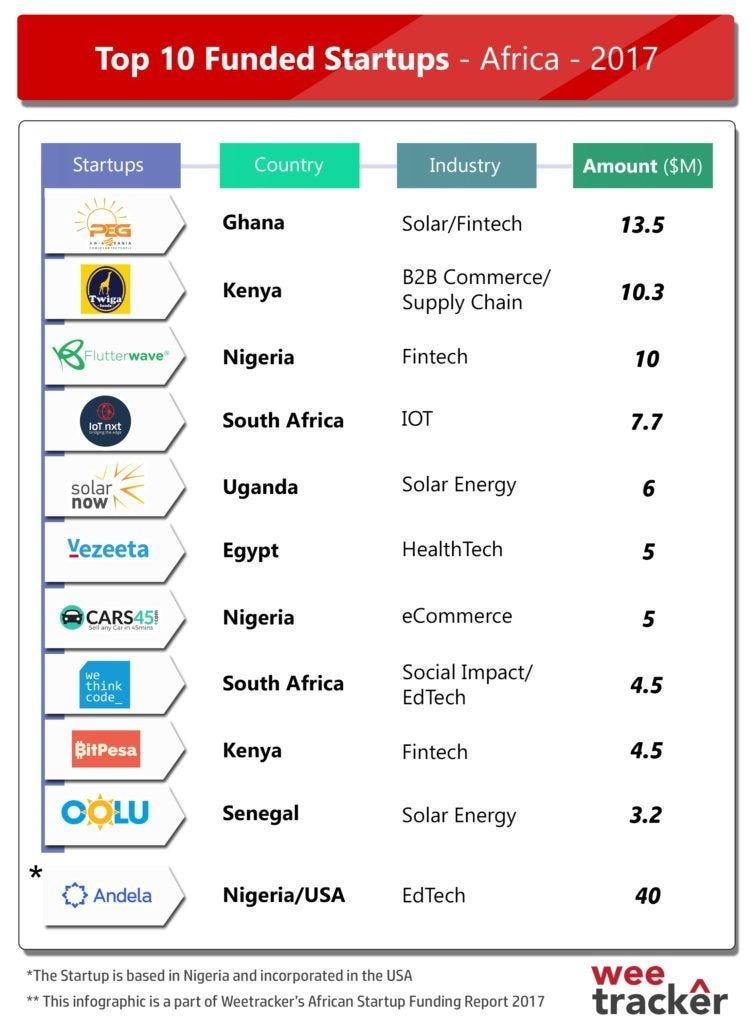Twiga Foods, the Nairobi-based agritech startup disrupting the inefficiencies in the Kenyan agricultural supply chain will still come to West Africa, but not in the meantime. The food distribution company Twiga Foods has decided to suspend its West Africa plans according to chief executive Peter Njonjo, and would, consequently, be focusing on its East African markets for now.

Here Is What You Need To Know
- Twiga Foods had planned to invest in expanding into more cities in Kenya while aiming at a pan-African expansion by the third quarter of this year.
- However, according to Peter Njonjo, in an interview with The Africa Report, theplans have become “impractical for the moment” due to travel restrictions and quarantine requirements in the wake of the coronavirus pandemic.
- According to Njonjo, any foreign expansion, for now, will focus on countries bordering Kenya. The startup’s immediate plan is to scale up in Kenya — establishing in the country’s third-largest city Kisumu by next month after which it will enter “two or three” more Kenyan cities by the end of 2020.
- Njonjo said the shift in plans is “a short-term change of emphasis” and Twiga is “not walking away from our plans to expand across the continent,” noting that Africa still has a “$300 billion problem to be solved” in terms of food access.
- Again, Njonjo, who was a one-time president for West and Central Africa during his 21-year time at Coca-Cola, maintained that West Africa remains a “sizeable opportunity” for the company due to its higher rates of urbanization compared with the east,
- Twiga has been operating all through the pandemic, being classified as an essential service by the Kenyan government. It has been able to retain all its employees and that should be the case for “the foreseeable future,” said the CEO.
- However, the startup will “definitely” need to raise money to expand its footprint, Njonjo added. The plan is to “synchronize” the new fundraising, expected within the next 18 months, with the opening up of African markets once the COVID-19 pandemic tensions have eased.
- Up till now, Twiga Foods has secured more than $67 million in debt and equity funding, the latest being a $30 million Series B raise from lenders and investors led by American banking giant Goldman Sachs and the International Finance Corporation last October.

Read also: Lessons Twiga Foods Has Taught Startups About Disrupting Africa’s Food Supply Chain
A Quick Reminder About What Twiga Foods Does
Co-founded in Nairobi in 2014 by Peter Njonjo and Grant Brooke, Twiga Foods’ simple business model is to aggregate all food retailers and dealers, from the banana vendors buying in bulk to the avocado retailers selling in stock, and then connecting them to Kenyan farmers producing quality farm produce. This is a classic example of a business-to-business (B2B) model, so that vendors looking to purchase agricultural produce don’t have to travel miles to meet local producers of the produce, thereby saving them the transportation and logistics cost, increasing the productivity and demand for the produce of the farmers, at the same time reducing food waste.
These metrics are what TLCom Capital looked out for when it invested in the startup in 2019.
“TLcom’s general investment thesis for Africa is that given the high penetration of mobile, there are very large markets where demand is already proven and technology can play a true role in offering a superior value proposition over existing solutions,” said Ido Sum, partner at TLCom Capital which syndicated Twiga Foods’ recent $30 million fund raising led by Goldman Sachs.
Quite noteworthy is the fact that TLCom Capital is often strategic with its investments, going mostly for early comers with the huge potentials. It went for Nigeria’s Kobo360, a startup pioneering digital trucking in Nigeria through the Goldman Sachs-led $20 million investment. It also went for Andela, one of Africa’s well-funded startups. Hence, that Venture Capitalist TLCom Capital preferred to invest in tech companies in their early to growth stages, such as Twiga Foods, shows that the startup is, to a large extent, home to disrupt.
The same is also said of Goldman Sachs, America’s leading investment banker which is recently interested in Africa and international institutional firms and VCs looking to invest on the continent at a time when other international investment banks such as Credit Suisse and Barclays have cut down or exited their African operations altogether. Goldman Sachs’ investment in Twiga Foods marks its first major deal in a Kenyan firm.
Currently, Twiga Foods serves around 3,000 outlets a day with produce via a network of 17,000 farmers and 8,000 vendors. It allows parties to carry out goods exchanges through mobile apps using M-Pesa mobile money for payment.
From an initial focus on agricultural goods and connecting the produce of farmers to marketplaces, the company has since created additional revenue streams by moving into the B2B supply chain for Fast Moving Consumer Goods and other consumer products.
Charles Rapulu Udoh

Charles Rapulu Udoh is a Lagos-based lawyer who has advised startups across Africa on issues such as startup funding (Venture Capital, Debt financing, private equity, angel investing etc), taxation, strategies, etc. He also has special focus on the protection of business or brands’ intellectual property rights ( such as trademark, patent or design) across Africa and other foreign jurisdictions.
He is well versed on issues of ESG (sustainability), media and entertainment law, corporate finance and governance.
He is also an award-winning writer
